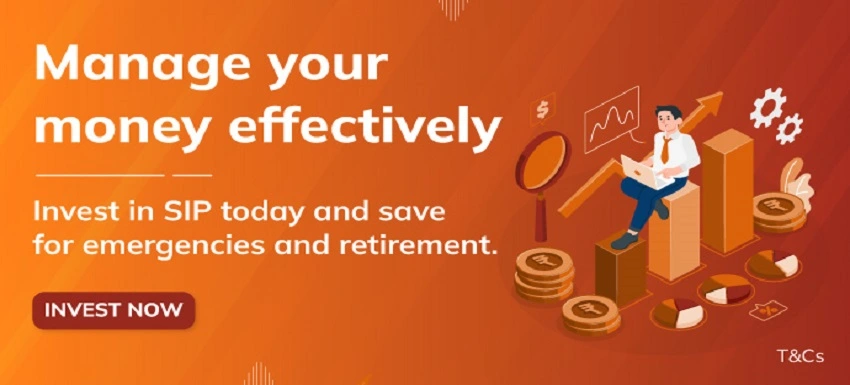THE
ORANGE
HUB
Debt Funds - Types, Return & How Debt Mutual Fund Works

What is Debt Fund?
A Debt Mutual Fund is an investment avenue, which primarily invests in fixed income securities like treasury bills, bonds, government securities and other debt instruments. These funds offer an opportunity for investors to earn stable returns with lower risk compared to equity investments.
Debt funds, a type of mutual fund, pool money from multiple investors and are managed by professional fund managers who make investment decisions on behalf of the investors.
Top Debt Mutual Funds
1. Aditya Birla SL Medium Term Reg-G
Aditya Birla SL Medium Term is a popular debt fund with a moderately high-risk profile. It has no lock-in period and an exit load of 1% in 730 days.
2. SBI Magnum Gilt-G
The SBI Magnum Gilt is a moderately risky debt fund with a zero lock-in period. It has offered high returns in the last ten years with no exit load.
3. DSP Gilt-G
DSP Gilt is a consistent debt fund with decent returns in the last ten years. The fund has no exit load and comes with no lock in period and a moderate risk profile.
4. Bandhan GSF Investment Reg-G
Bandhan GSF from Bandhan Bank has no lock-in period and no exit load. Investors looking for a high-return debt fund can consider it.
5. Nippon India Nivesh Lakshya Reg-G
The Nippon India Nivesh Lakshya is a popular debt fund with a 1% exit load within one month. The fund also offers a moderate risk profile with zero lock-in period and consistent returns.
Types of Debt Funds
Debt Funds come in several types that cater to the different needs of the investors. Here are some common types:
Liquid Funds :
Ideal for short-term investments with high liquidity. They invest in very short-term debt instruments.
Income Funds :
These funds are suited for regular income and invest in a mix of government and corporate securities.
Short-Term and Ultra Short-Term Funds :
Aimed at investors with a short-term horizon, these funds invest in debt instruments with shorter maturities.
Gilt Funds :
These invest primarily in government securities and are considered low-risk.
Dynamic Bond Funds :
Managed actively to adapt to the changing market conditions, they have the potential to offer higher returns.
Credit Opportunity Funds :
Invest in debt instruments with varying credit qualities, potentially providing higher returns with higher risk.
Fixed Maturity Plans (FMPs) :
Close ended funds with a fixed maturity date, providing a clear investment horizon.
Corporate Bond Funds :
Potentially offering higher returns than government securities
Features of Debt Funds
Features of Debt Funds
Debt Funds are investment options that deal with bonds and government or corporate debt securities. The features of these funds are:-
1. Suitability
For investors seeking profits, Debt Funds are the ideal choice due to their minimal risk profile. They are growing popular among people looking for short to medium term investment goals.
2. Returns
Debt Funds offer stable returns over time because their performance is affected by fluctuations in interest rates.
3. Risks
Debt Funds come with risks such as interest rate risk due to fluctuations, credit risk arising from issuer payment defaults, and liquidity risk on insufficient funds for redemptions.
Overall, debt funds are an ideal choice for investors who prioritise safeguarding their capital.
How do Debt Funds work?
Debt Funds function by investing in a diversified portfolio of fixed income securities. Here is how they work:
Diverse Portfolio :
Debt Funds spread investments across various debt instruments, reducing the risks associated with individual bonds.
Professional Management :
Expert fund managers make investment decisions based on the market conditions and the fund's objectives.
Risk and Returns :
Debt Funds offer a predictable income stream as interest or dividends. The interest rates and credit quality of the underlying securities influence the returns.
Liquidity :
Investors can buy or sell units in Debt Funds quickly, providing high liquidity
Who should invest in Debt Mutual Funds?
Debt Mutual Funds are an excellent choice for investors who are seeking safety and stability. Consider investing in Debt Funds if:
You are risk-averse and prioritise capital preservation
You seek regular income, like the retirees
Your investment horizon is short to medium-term
You prefer professional fund management over individual bonds
Investing in Debt Mutual Funds can be integral to a well-balanced investment portfolio, offering stability while aiming for returns higher than traditional Savings Account or Fixed Deposit.
Why should you invest in Debt Funds?
Investing in debt funds offers several compelling reasons:
Professional Expertise and Returns: Debt funds provide access to money markets and wholesale debt markets, offering retail investors the chance to earn interest and capital gains on debt managed by professionals.
Investment Options: With a range of maturity and credit risk options, investors can choose funds that match their risk tolerance. Short-term funds offer consistent income, while longer-duration funds are suited for those comfortable with higher NAV volatility.
Low Risks: For investors looking to have fewer risks than equity funds, debt funds are a good option. They are appropriate for short-term objectives and provide steady returns. However, before investing, one should do proper research on the potential risks associated with debt Mutual Funds such as interest rate risk (variable market rates)
Liquidity: Debt funds feature high liquidity, with speedy redemption, usually within one or two working days. Unlike fixed deposits, there's no lock-in period, but some funds may impose minor exit costs for early withdrawal.
These factors collectively make debt funds an attractive investment option for those seeking steady returns with manageable risk levels and flexibility.
How to Pick the Best Debt Fund
1. Align Fund Duration with Investment Objectives
If your goals are short-term (less than a year) then select liquid or ultra-short-term funds. Short-term bonds are an excellent choice if you want to invest for 1 to 3 years.
2. Recognise Your Objectives
Always keep a check if the fund aligns with your financial objectives. This may include retirement savings or financial emergencies.
3. Keep a Check for Risks
Although debt funds are less risky than equities, they might include some risks such as interest rate and credit concerns.
4. Examine Previous Results
Examine the fund's historical performance, particularly under various market circumstances. You can get an idea of the performance of the fund.
5. Pay Attention to the Cost Ratio
Keep an eye on the expense ratio because debt funds often yield lesser returns. Over time, funds with reduced fees provide you with more money.
6. Recognise the Tax Effect
It is essential to have clarity on the tax impact on your investment. Short-term gains are taxed as per your income tax slab.
7. Examine Fund Returns and History
Examine the fund's historical performance. Select a fund that has produced steady returns in the last 5 to 10 years.
Things to Consider Before Investing in Debt Mutual Funds
When considering to invest in debt funds, several factors should be kept in mind:
1. Fund Returns
Analyse long-term returns spanning three, five, or ten years, seeking consistency in outperformance against benchmarks and peer funds across diverse time frames. However, align the fund's performance analysis with your investment objectives, as past performance doesn't guarantee future results.
2. Fund History
Prioritise fund houses with a promising history of sustained performance over at least five to ten years in the investment market.
3. Expense Ratio
Assess how much of your investment covers fund management expenses. Opt for lower expense ratios as they provide higher take-home returns, especially when comparing funds with similar asset allocations and returns.
4. Financial Ratios
Utilise metrics like standard deviation, Sharpe ratio, alpha, and beta to evaluate funds. Higher standard deviation and beta indicate increased risk compared to lower counterparts. Prefer funds with higher Sharpe ratios, signalling enhanced returns per unit of risk undertaken.
Each factor plays an essential role in developing a well-informed investment strategy in debt funds.
Taxation on Debt Mutual Funds?
Taxation rules for Debt Mutual Funds vary based on the duration of unit holding:
Gains for periods up to three years are considered short-term capital gains (STCG). These gains are added to taxable income and taxed according to the applicable income tax slab.
For periods exceeding three years, gains are deemed long-term capital gains (LTCG). LTCG is taxed at a rate of 20%, with the benefit of indexation.
Understanding these variations is important for investors to plan their investments and project tax liabilities effectively. Short-term capital gains are subject to regular income tax rates, while long-term gains enjoy a preferential tax rate of 20%, offering potential tax savings over the short term. Indexation benefits further minimise tax liabilities on long-term gains, providing investors with additional advantages in managing their tax obligations.
Debt Funds Related FAQs
1. Do Debt Funds have a lock-in period?
No, debt funds do not impose a lock-in period. This, alongside potentially higher post-tax returns, represents another notable advantage debt funds offer over Fixed Deposits.
2. Are Debt Mutual Funds risk-free?
A few debt funds, such as Overnight and Liquid Funds, pose a minimal or near-zero risk. Nevertheless, certain categories of debt mutual funds carry inherent risks, so a thorough assessment before investing is recommended.
3. Should you invest in a short term Debt Fund?
Short-term debt funds can be a good option for investors looking for safer investment options with a timeframe of 1-3 years. They generally offer higher returns than traditional savings and are less volatile than equity funds.
Debt Funds offer an excellent opportunity for investors in India to diversify their portfolios, earn steady returns and minimise risks. Whether you are looking for short-term liquidity or stable long-term income, there is a Debt Fund tailored to meet your financial goals.
Reach out to a financial advisor to understand the best fit for your unique needs and start your journey towards secure wealth creation.
4. Are debt funds better than equity funds?
Debt funds majorly invest in bonds and fixed-income instruments and are less risky investment options. These are ideal for short-term goals. On the other hand, equity funds are suitable for long-term goals because these are more risky although they provide higher returns. Overall the choice between the two depends on your financial goals, investment horizon, and risk tolerance.
5. Are debt funds more secure than FDs?
FDs and debt funds have different purposes. Because debt funds offer more liquidity and higher returns and they are appropriate for long-term investments. However, FDs are the ideal option for risk-averse individuals who value stability above potential gains. They are safer and provide guaranteed returns.
6. Is it good to invest in a short-term debt fund?
If you need money within a year or three, investing in short-term debt funds can be a smart choice. While lowering risk, they often provide higher returns than Fixed Deposits (FD). These funds are a safer option for short-term investing since they make investments in reputable businesses.
7. Is FD a debt fund?
No, FD is not a debt fund but a type of term deposit offered by banks. With an FD, you get to deposit your money for a certain tenure where you also get to earn a decent rate of interest over time. Debt funds are connected to market performance and offer more returns than FD but with a level of increased risk.
Scroll to top











